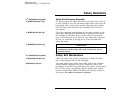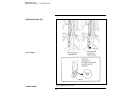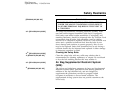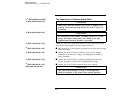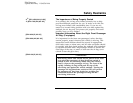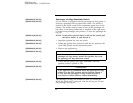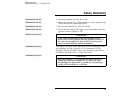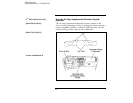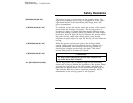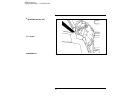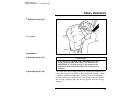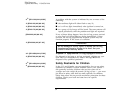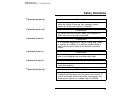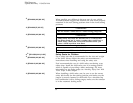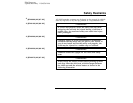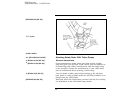
Safety Restraints
31
[SR12900(ALL)06/95]
The driver air bag is in the center of the steering wheel. The
right front passenger seat air bag (if equipped) is in the upper
right hand section of the instrument panel ledge above the
glove compartment.
*
[SR13010(ALL)07/95]
If a collision occurs, the sensors sense the severity of the impact
and activate the air bags if necessary. The air bag system is
designed to deploy in frontal and front-angled collisions more
severe than hitting a parked vehicle (of similar size and weight)
head-on at about 28 mph (45 km/h). Because the system senses
the crash severity rather than vehicle speed, some frontal
collisions at speeds above 28 mph (45 km/h) will not inflate the
air bag.
*
[SR13020(ALL)07/95]
When the sensors activate the system, the air bags inflate
rapidly, filling with non-toxic nitrogen gas in a fraction of a
second. Immediately after inflation, the air bags deflate by
releasing the nitrogen gas through vent holes. The whole
process takes place in a matter of seconds.
*
[SR13030(ALL)07/95]
RWARNING
Air bag system components get hot after inflation. Do
not touch them after inflation.
%
*
[SR13050(ALL)05/95]
The air bag system uses a readiness light on the instrument
cluster and a tone to indicate the condition of the system. When
you turn the ignition key to the ON position, this light will
illuminate for approximately six (6) seconds and then turn off.
This indicates that the system is operating normally. NOTE:
Maintenance of the air bag system is not required.
File:03unsrr.ex
Update:Wed May 1 13:43:56 1996



